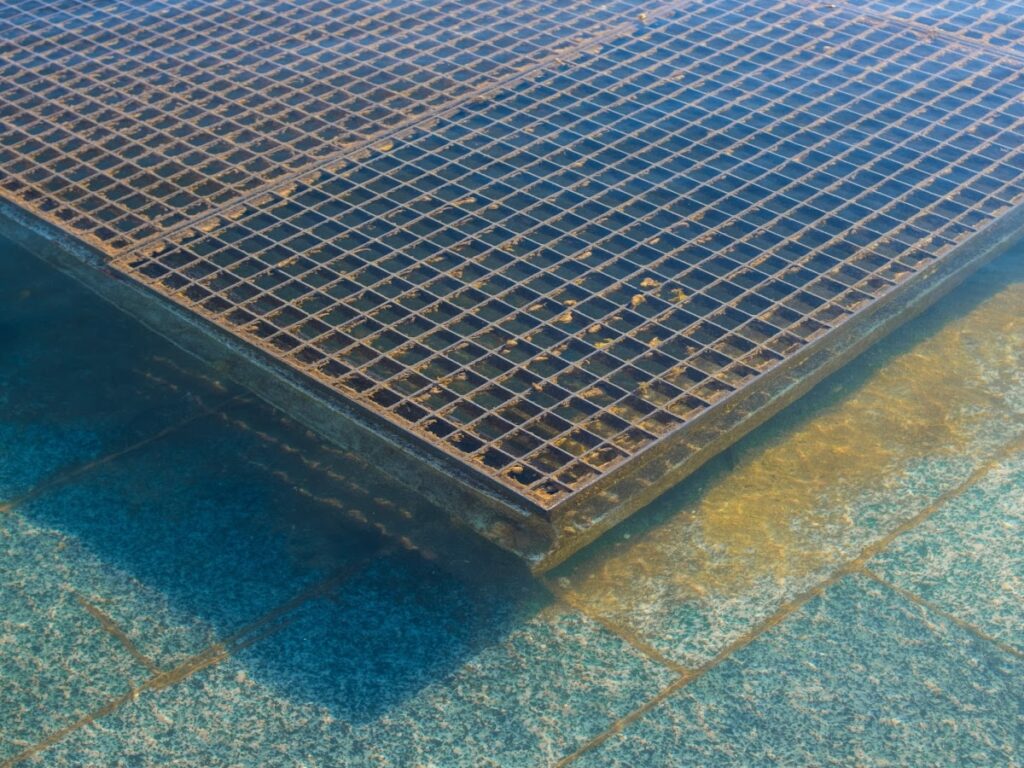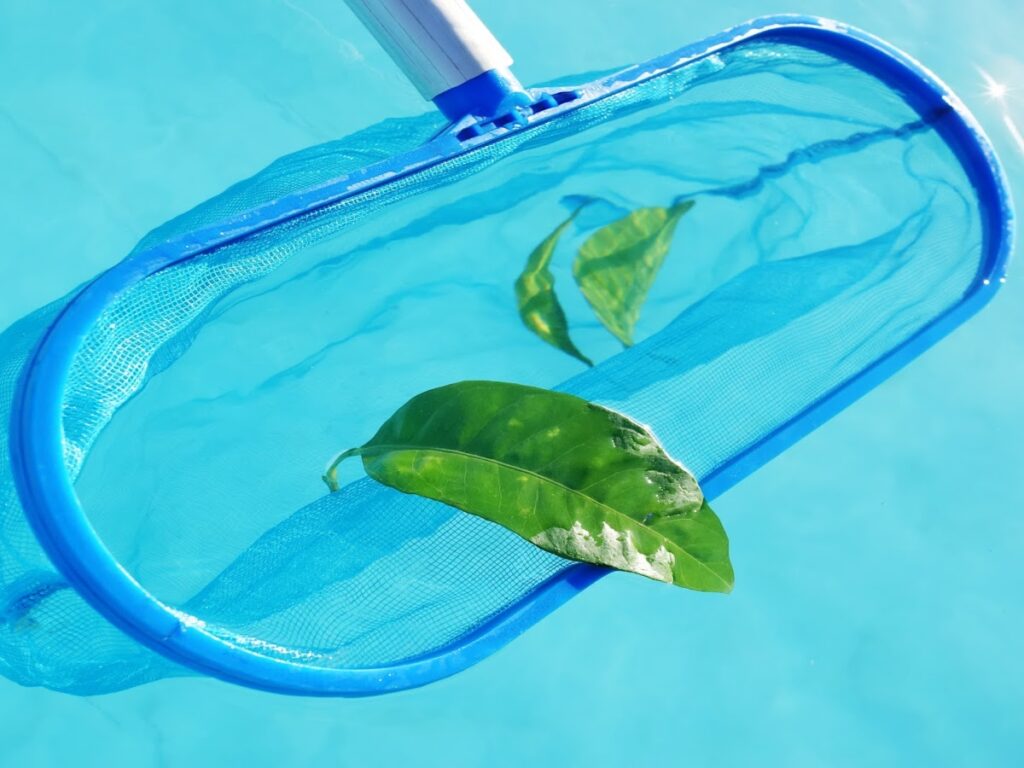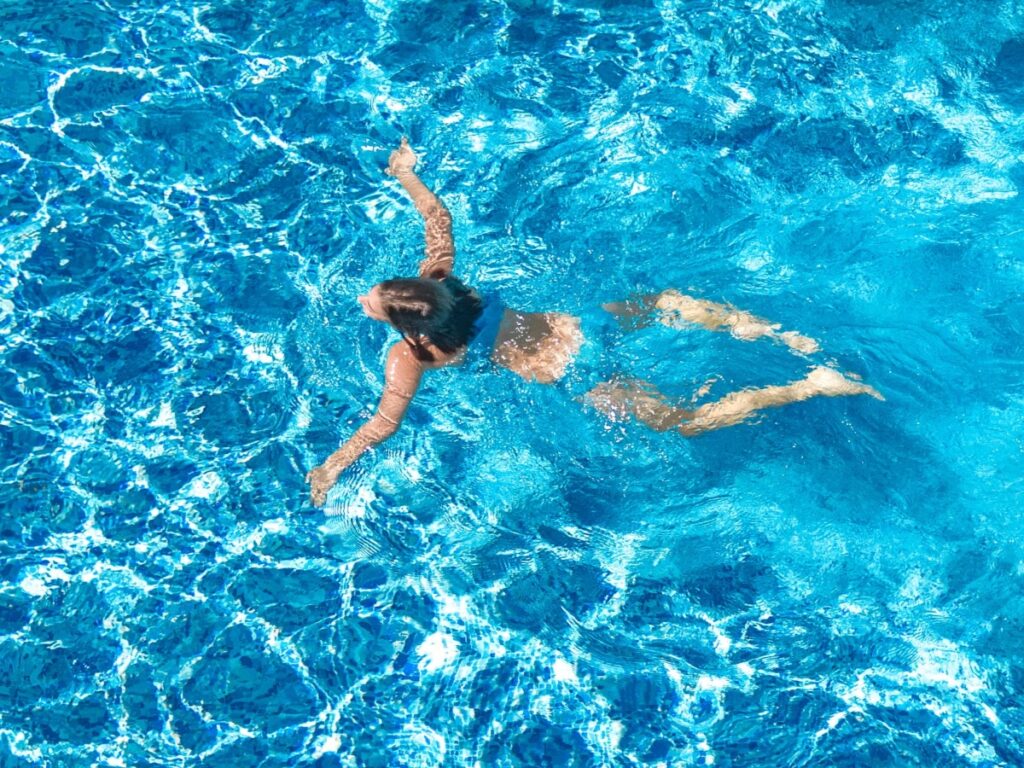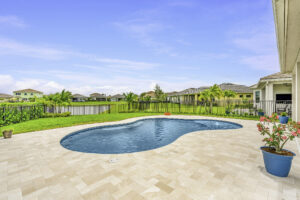Understanding Saltwater Pool Systems
Saltwater pools are becoming increasingly popular due to their lower maintenance requirements and gentler effect on skin and eyes than traditional chlorine pools. A salt chlorine generator converts salt into chlorine through electrolysis, continuously producing chlorine that sanitizes pool water—understanding how saltwater systems function is vital when dealing with pool stains.
Salt and Chlorine in Saltwater Pools
Salt is integral to any saltwater pool as the raw material for chlorine production. A salt chlorine generator uses salt dissolved in water to produce an ongoing supply of chlorine to disinfect pool water and kill bacteria and algae growth. The produced chlorine helps sanitize it as well.
Pros & Cons Analysis of saltwater pools
Saltwater pools offer many advantages, from being gentler on skin and eyes to reduced chemical usage and lower chlorine odor. Their constant generation helps ensure more stable levels. But saltwater pools can have their drawbacks, too – including higher installation costs for their salt chlorine generator and corrosion issues on equipment and surfaces.

Swimming Pool Stains in Saltwater Pools: What You Should Know About
Pool stains in saltwater pools can generally be divided into organic and inorganic categories. Knowing which type of stain you have will allow you to select a practical treatment approach.
Organic Stains in Saltwater Pools
Organic stains in saltwater pools often result from leaves, grass, algae, or other natural materials entering the pool and depositing leaves, grass clippings, grass seed heads, or debris. These organic materials often become embedded within the pool’s sediment layers over time and present complex removal challenges. Regular pool maintenance services should be implemented to avoid the buildup of organic matter that causes staining – as regular pool cleaning helps ensure organic materials don’t build up and stain your pool surface in future years.
Stains Found in Saltwater Pools
Inorganic stains in saltwater pools are caused by metals and minerals present in the pool water, including iron, copper, calcium, manganese, etc., which may form stubborn blue, green, or brown spots that are difficult to remove. High metal concentrations in the pool water can lead to staining; monitoring and balancing its chemistry is vital to avoiding inorganic stains.
Saltwater Pool Owners Have Special Concerns to Address
Effect of Salt Levels on Pool Stains
Salt is essential in producing chlorine for saltwater pools, yet excessive levels may lead to corrosion of surfaces and equipment in your pool. Corrosion releases metals into the water that stain and discolor its characters, so be sure to regularly test and monitor your pool salt levels to avoid excessive corrosion. Keeping within recommended range will ensure safe swimming environments!
Influence of Chlorine Levels on Stain Formation
Maintaining optimal chlorine levels in a saltwater pool is crucial to avoid both organic and inorganic stains, deficient chlorine levels that lead to algae growth and organic staining, and high chlorine levels which cause metal components to break down, leading to inorganic staining. Regularly monitor PPM chlorine levels (parts per million), making adjustments until they fall within their optimal range.
Maintain Proper pH Levels to Prevent Stains.
pH levels play a pivotal role in stain prevention in saltwater pools. Improper pH balance can lead to scaling caused by calcium precipitating onto pool surfaces. Regular testing and adjustments of your pool’s pH levels should help remain balanced – and reduce scaling or staining risks.

Preventive Measures and Maintenance Recommendations
Maintaining an inviting saltwater pool requires proactive measures and consistent maintenance practices to keep its beauty. By adhering to these recommendations and steps, pool owners can effectively prevent unsightly stains from appearing and keep their saltwater pools looking stunning throughout their ownership experience.
Regular Monitoring of Chlorine Levels (PPM)
Maintain the ideal chlorine levels in your saltwater pool with regular chlorine tests using an accurate test kit, with superior levels ranging between 1-3 PPM (parts per million). Doing this will help prevent algae growth, organic staining, and organic buildup in the pool.
Adjusting Salt Levels in Saltwater Pools
Ensure your pool’s salt levels fall within the manufacturer’s recommended range for its salt chlorine generator. Too much salt may lead to corrosion, while too little can compromise production and water quality.
Proper Utilization of Chlorine Tablets in Saltwater Pools
At times, utilizing traditional chlorine tablets in a saltwater pool may be necessary. When doing so, be mindful and follow the manufacturer’s instructions closely to avoid over-chlorination and possible staining issues.
Effective Utilization of a Salt Chlorine Generator
Understanding how a salt chlorine generator operates appropriately is essential to its successful operation. Adhere to all manufacturer instructions regarding maintenance, cleaning, and salt level adjustments to ensure efficient chlorine production by your generator.
Pool Water circulation and Filtration systems
Proper water circulation and filtration are vital to avoid the buildup of debris and contaminants that could stain your pool water. So, ensure your pool pump and filter system run for enough time each day to keep the water clean and clear.
Pool Stains Can be Removed and Treated Effectively
If any stains arise in your saltwater pool, make sure they’re dealt with quickly to keep them from becoming more difficult to remove later. Use products and methods appropriate to your type of stain for safe and efficient removal; seek professional advice to ensure safe disposal.
Swimming in a Saltwater Pool Can Benefit the Eyes and Skin
Swimming in a saltwater pool can be more enjoyable for many due to the reduced chlorine odor and softer water quality. Nevertheless, proper care must be taken to protect the eyes and skin when indulging in this activity.
Safety and Comfort in Construction Project Management
Though saltwater pools tend to be less uncomfortable for eyes and skin than chlorine pools, observing basic pool safety measures is still essential. Avoid getting pool water in your eyes, and rinse thoroughly after swimming to remove any remaining salt or chlorine residue from your body.
Protect Your Eyes and Skin With These Strategies
Wearing swim goggles will protect your eyes from irritation and discomfort while using a pool moisturizer after swimming can keep skin hydrated and reduce any dryness caused by saltwater exposure.

Crystal Clear Care: Essential Steps for Maintaining a Stain-Free Saltwater Pool
Avoiding pool stains in saltwater pools requires thorough maintenance and consideration of water chemistry. By understanding the challenges and solutions related to saltwater pools, pool owners can experience an enjoyable swimming experience that remains stain-free for years. Regularly check chlorine and salt levels; ensure adequate circulation; address any stains as soon as they appear – proper care and maintenance will guarantee an inviting oasis.
Specializing in all things pool services, the team behind Finns Pool Services brings more than just technical expertise to West Palm Beach. Rooted in family values, this full-service company has not only built a legacy in top-notch pool care but also prides itself on its vast team of experts and its unwavering commitment to professionalism. With countless successful pool projects under their belt, they stand as a beacon of trust and quality in the heart of Florida. Dive into a world where dedication meets the deep end.



